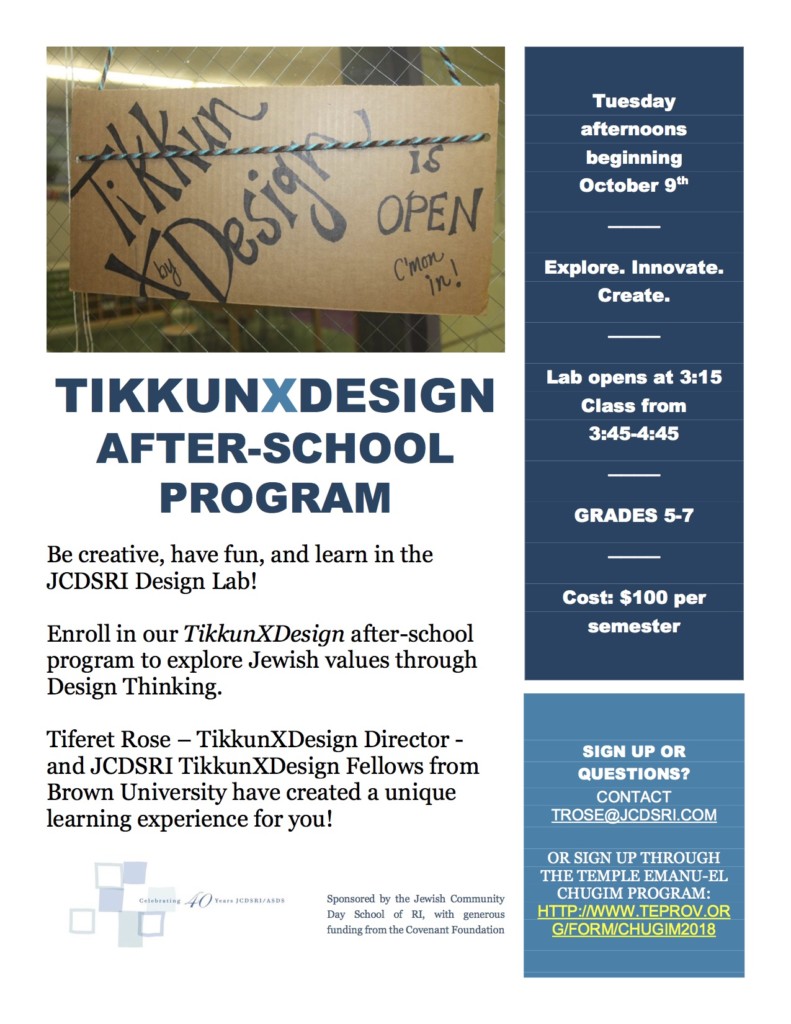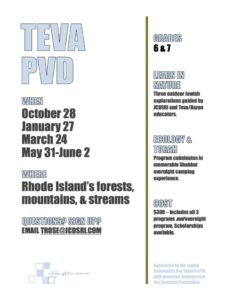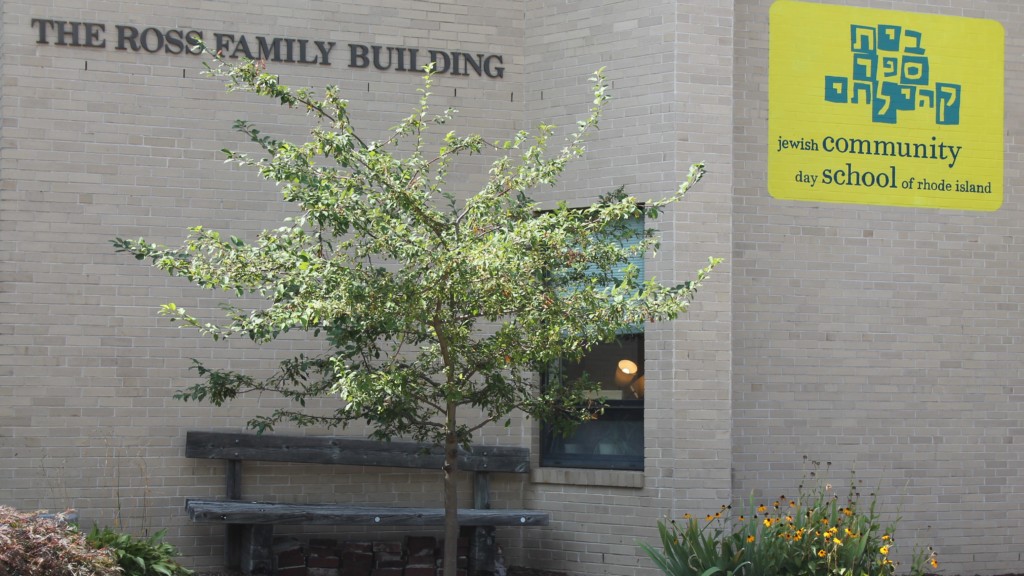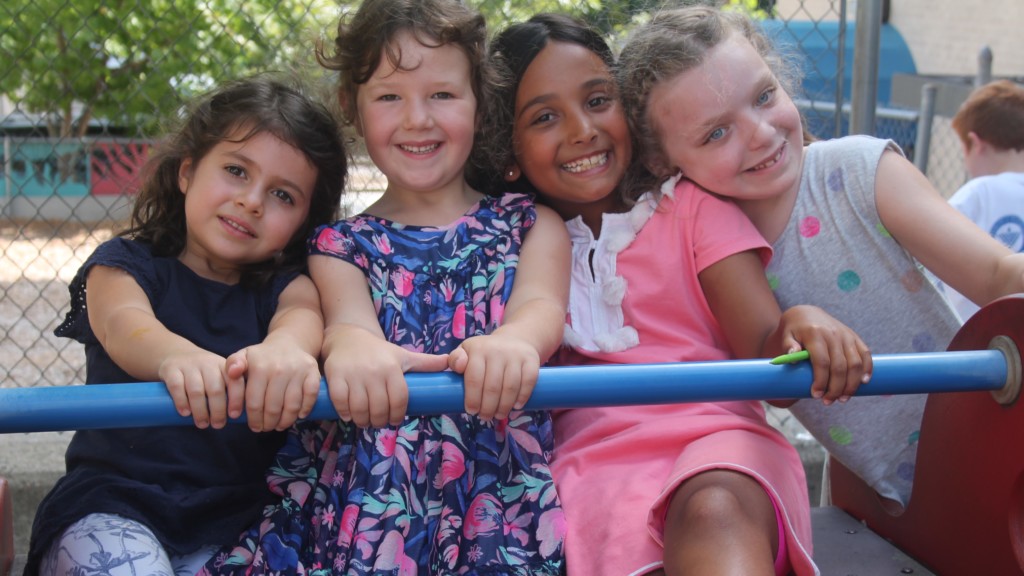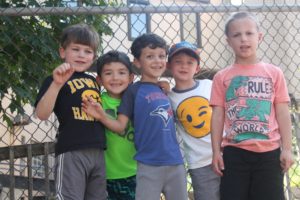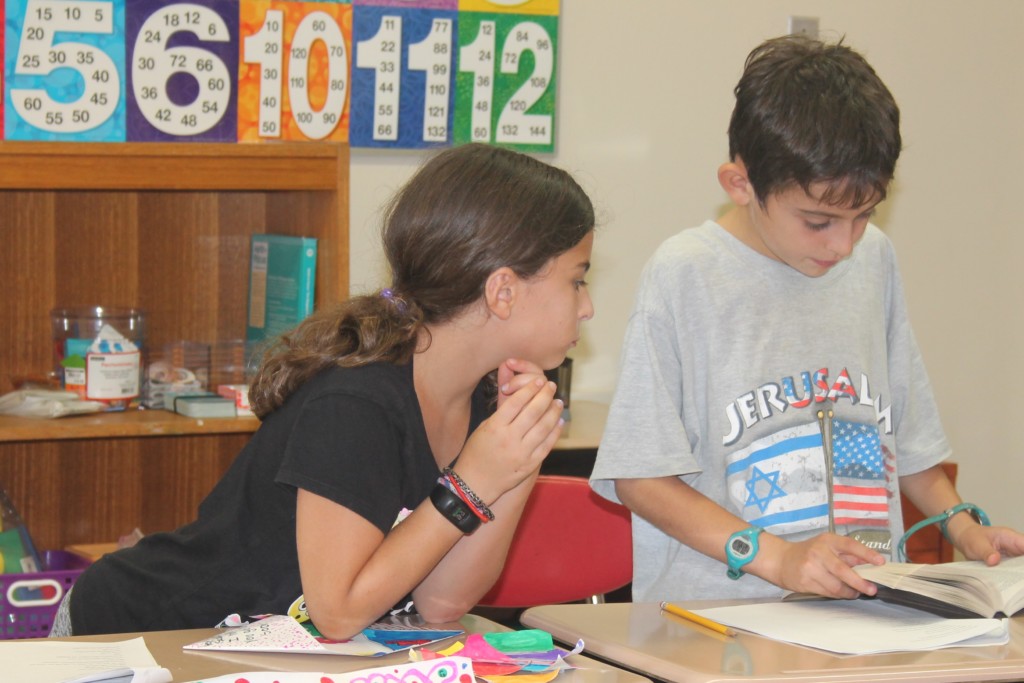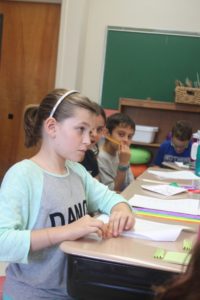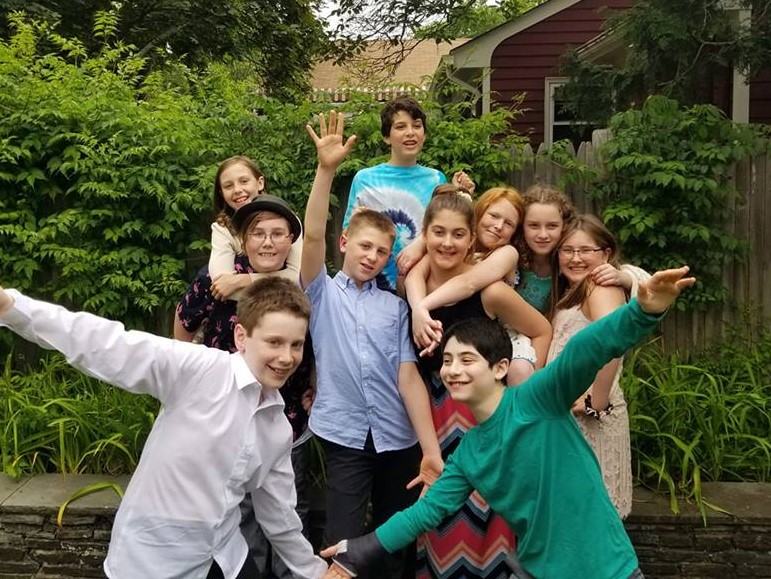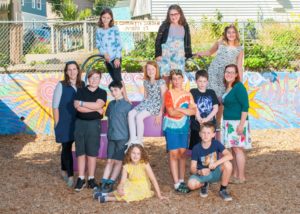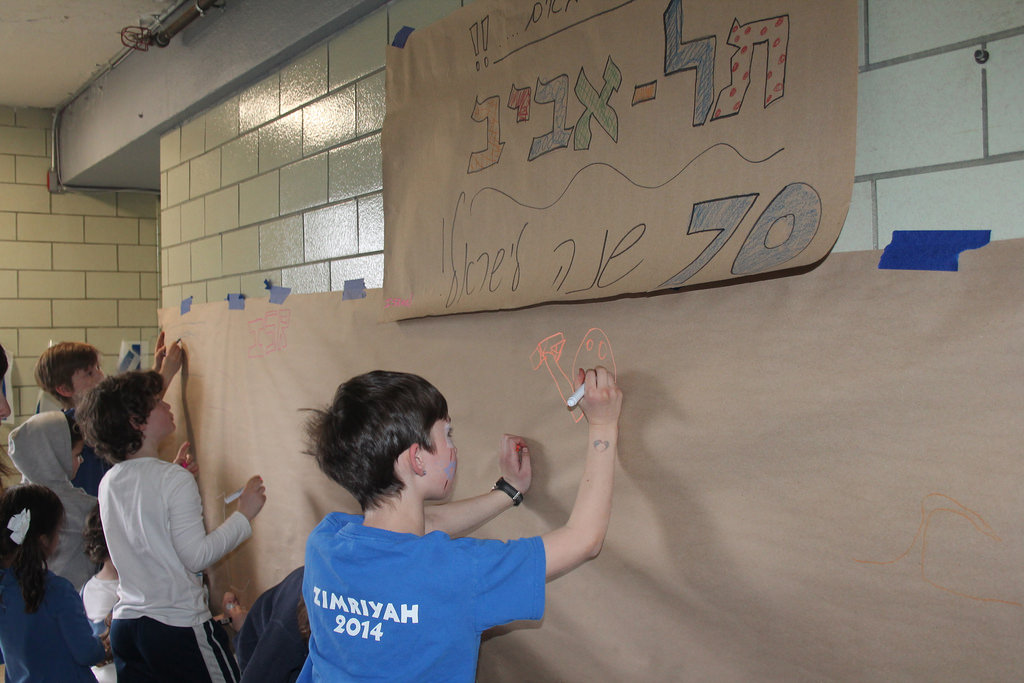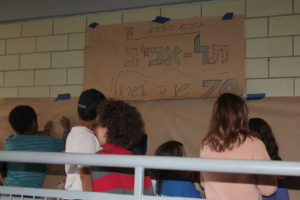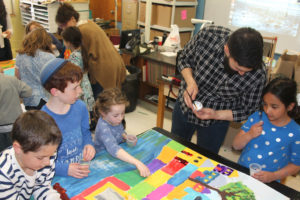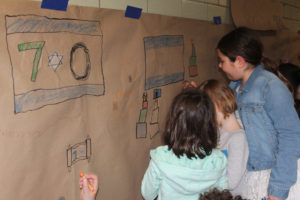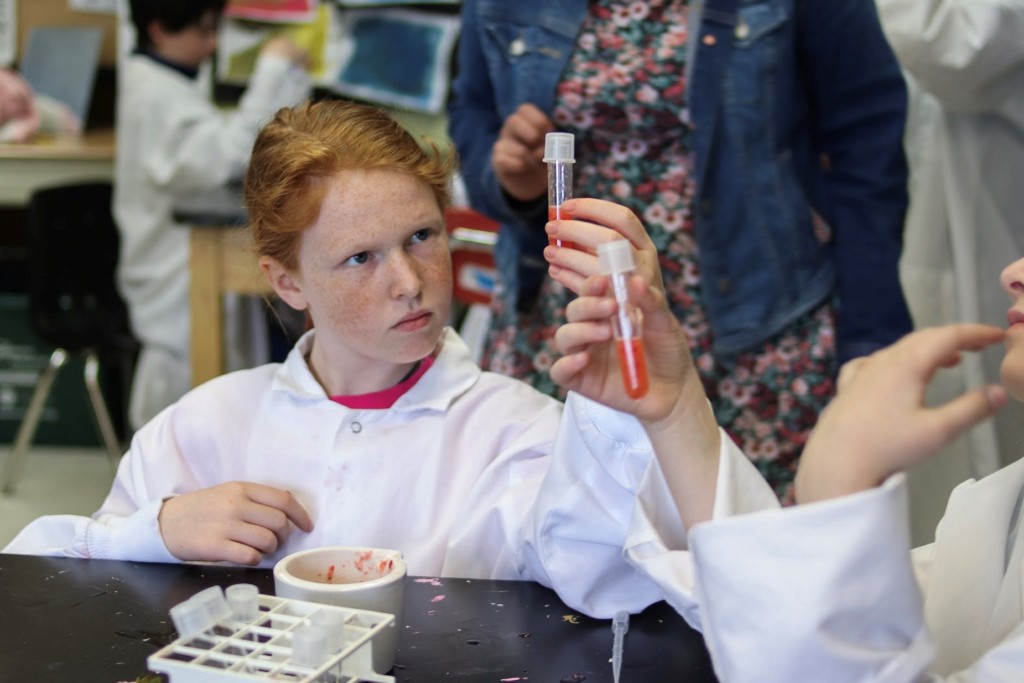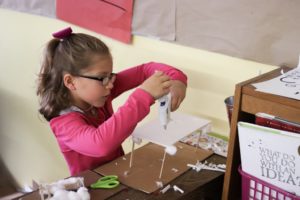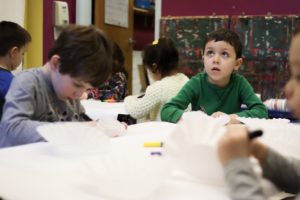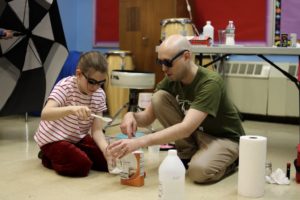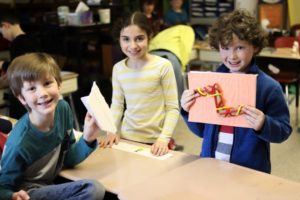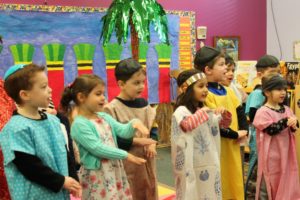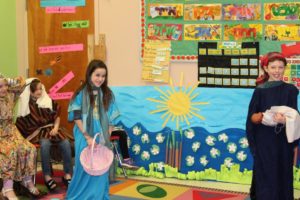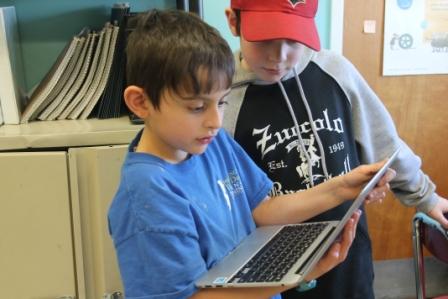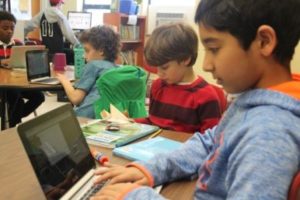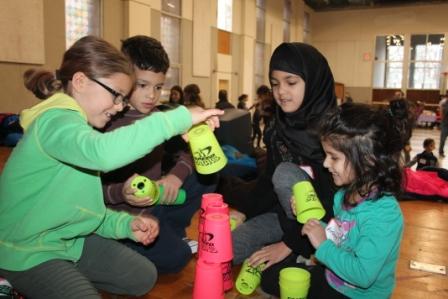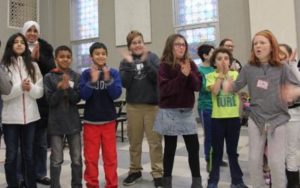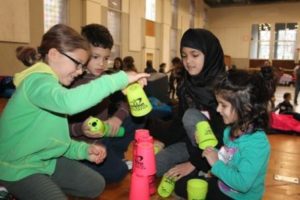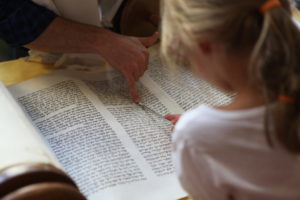 It all started forty years ago at the Providence home of Sheila and Paul Alexander. While their kids played upstairs, the Alexanders hashed out a bold idea with three other couples with preschoolers: Rabbi Alvan and Marcia Kaunfer, Joshua and Penney Stein, and Chuck and Ada Beth Cutler. They wanted a Jewish day school education, but something more liberal and egalitarian than that offered by the Providence Hebrew Day School.
It all started forty years ago at the Providence home of Sheila and Paul Alexander. While their kids played upstairs, the Alexanders hashed out a bold idea with three other couples with preschoolers: Rabbi Alvan and Marcia Kaunfer, Joshua and Penney Stein, and Chuck and Ada Beth Cutler. They wanted a Jewish day school education, but something more liberal and egalitarian than that offered by the Providence Hebrew Day School.
The four couples were recent transplants to Providence, and had experience with the Conservative movement’s Schechter schools that were sprouting up across the country. As public school graduates, they wanted their children to have a stronger Jewish foundation than they had, or that was possible with afterschool religious education at a synagogue. So they started thinking about opening their own Schechter school. It was already March of 1978, but they aimed for the fall.
As Penney Stein recalled, “We were young and crazy enough to think we could pull it off.” It helped that Alvan Kaunfer, the assistant rabbi at Temple Emanu-El, had been head of the Judaic studies department at Toronto’s Schechter school. Ada Beth Cutler had started her teaching career at a New York Schechter, and Penney Stein herself was an educator with a Ph.D.
These young families got crucial support from two leaders at Emanu-El, Joel Zaiman, the senior rabbi, and longtime trustee Sanford Kroll. They had pushed for a Schechter school years before, but hadn’t been able to persuade parents to sign on. This time, with parents taking the lead, it worked.
The founders informed president Marvin Holland and the board of the Jewish Federation (now Jewish Alliance) of their plans, but made no request for funding. They did gain some vital philanthropic help and advice from Emanu-El trustees Max Alperin and Benton Odessa.
The parents met some resistance from those who worried that the community couldn’t support two day schools. After all, Providence Hebrew Day School, while always Orthodox, had been the original community school when it started 30 years earlier. Among its founders were the senior rabbis from Emanu-El (Conservative) and Temple Beth-El (Reform). Emanu-El had even temporarily housed the school when it moved from its original downtown location to its present building at Elmgrove and Savoy.
A big step was asking Emanu-El’s board for a classroom, which the trustees granted for a token rental fee. As for the legal details, Dan Kaplan, an Emanu-El congregant and lawyer, volunteered to handle the paperwork. The Providence School Department required only minor renovations to the space, as well as a written curriculum, before allowing the school to open in September.
The Conservative Jewish Day School of Rhode Island started small, with just a half-day kindergarten class the first year. By the end of the first year, the school formally affiliated with the Schechter movement and gained a start-up grant, leading to a new name, the Solomon Schechter Day School of Rhode Island. Every year it added a grade as the original class moved ahead.
Ada Beth Cutler was the first teacher, and Rabbi Kaunfer served as an unpaid director on the side. He would go on to serve for many years as the director, now paid, as did Penney Stein after him. Marcia Kaunfer taught at the school for decades, and even in retirement continues to mentor teachers. Sheila Alexander was president for several years, as well as a long-serving trustee.
Alexander remembers the founders all spent long hours meeting with prospective parents, describing the school and why they wanted it for their own kids. Eventually the school demonstrated its staying power, while Providence Hebrew Day School was also thriving. Now the community offered a choice, and some longtime supporters of Hebrew Day, such as Arthur Robbins, eventually came around to support the new school, too. Over time, the Jewish Alliance also helped in various ways.
The first class of 10 kids came mostly from Emanu-El families, but the founders remember at least one from Beth-El. They never considered making it the non-denominational community school, simply because they had no model or concept to draw on. But by 2006 the concept was far along, and the school re-shaped itself as the Jewish Community Day School of Rhode Island.
Now beginning its 40th school year, the school is planning a gala celebration on the evening of April 7, 2019, as well as some smaller gatherings.
This article was written by John Landry and appeared in the September 21st edition of the Voice and Herald.
John lives in Providence and is the father of two alumni of JCDS.
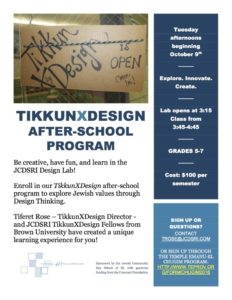 TikkunXDesign is now available to 5th grade and middle school students in the community as an after school program.
TikkunXDesign is now available to 5th grade and middle school students in the community as an after school program. 